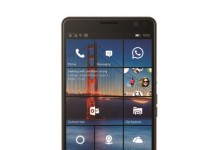 HP has come out with a new $799 Windows 7 tablet PC, called the Slate 500. Ars Technica’s Peter Bright has a brief look at it, finding that it is aimed squarely at businesses rather than consumers—don’t expect to be using it for e-reading in the home, unless you have a lot more money to burn than the average tablet consumer.
HP has come out with a new $799 Windows 7 tablet PC, called the Slate 500. Ars Technica’s Peter Bright has a brief look at it, finding that it is aimed squarely at businesses rather than consumers—don’t expect to be using it for e-reading in the home, unless you have a lot more money to burn than the average tablet consumer.
The result is a device for corporations to run custom Windows applications on—healthcare, point-of-sale, banking, that kind of thing. This point is underscored by HP’s marketing video. In these environments, the ability to run existing Windows software like Office and Skype, as well as these custom applications, is a virtue.
Matt Burns at TechCrunch draws a parallel between this device and the late-model Sony Clié PDAs that added a chiclet keyboard, camera, and fancier interface in a flip-closed form factor—both cases represented a necessary advance of mobile technology, and attractive to small niche markets, but the overall device wasn’t/isn’t ready for the general market yet because it’s putting the OS (the original PalmOS for the Clié; Windows 7 for the Slate) into a hardware platform it wasn’t meant to support.
Look at Windows 7. It’s a less of a hog than Vista, but it’s still an OS designed to be run on a desktop OS. But there’s a very limited application library outside of Windows and so makers like HP will keep Windows around — application support was one of the chief reasons Sony stayed with Palm OS. Other tablets such as the ExoPC will skin Windows, but that’s only a temporary solution. Eventually Windows, like the Palm OS, will hit a point where it will no longer offer that many advantages over a proper mobile OS.
This, Burns suggests, is why HP’s consumer-level tablets will stick with WebOS because most consumers simply don’t need to run the sort of desktop-OS business applications that the enterprise market does.
This also puts me in mind of the Dell Streak, which as I reported last month is being aimed specifically at the medical enterprise market. It seems that tablet makers aren’t letting the iPad’s popularity with consumers distract them from realizing that business markets often have completely different needs.
































